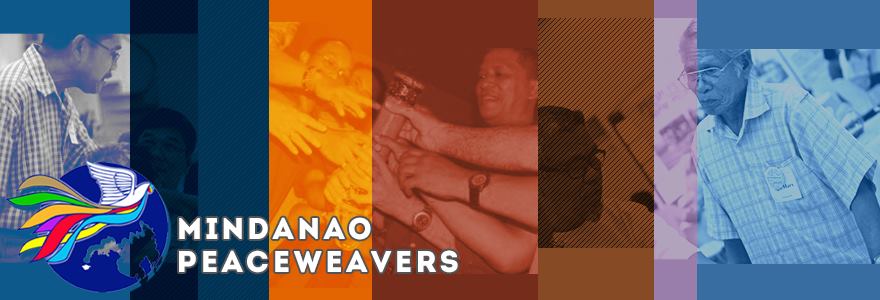The Mindanao Peoples Peace Agenda (MPPA) represents the fruit of this constructive, inclusive and democratic dialogue, a dialogue that we believe is the key to manifesting peace, justice and harmony in our island. Through this dialogue, we have now come to a consensus in crafting a road map or set of guidelines toward the future. Like a map, the MPPA helps clarify and define the big picture. It not only shows where we come from, that is, the historical issues and dynamics that must be transformed, but also the way forward. The construction of this agenda was built on the deepest desires and daily reality of the peoples of Mindanao, particularly those suffering violence, injustice and oppression. Out of this reality emerged a comprehensive and holistic vision of peace, of the people and for the people, which the agenda lays out in concrete terms. As it is oriented towards strengthening the people’s right to determine their own destiny and peaceful future, the cornerstone theme is commonly known as the Right to Self Determination (RSD).
Self-determination is a basic human right. The right to self-determination is not merely a legal concept; it is an inherent and inalienable right which constitutes the core essence of human beings, peoples and nations. It is the right of peoples to determine their role, place and identity in society as they freely pursue their socio-political, socio-economic and socio-cultural development. These three aspects of development – politics, economy and culture – define the overall organization of the MPPA because they form the main arenas in which the RSD struggle plays out. The right to self-determination is indeed about people’s freedom of choice and their ability to control their own lives and destiny. However, our diverse perceptions and interests also translate into varying perspectives on this fundamental and powerful right.
There are diverse assertions and competing claims, but upholding the right to self-determination of one community should not mean violating the right to self-determination of another.
Thus, the challenge that the Mindanao People’s Peace Agenda addresses, as a Peace agenda, is how to work towards a society that upholds and respects people’s right to self-determination such that those whose rights to self-determination need not resort to armed means. The other challenge is in ensuring that peace processes decisively address issues of injustice in respect of peoples’ right to self-determination.
The Mindanao People’s Peace Agenda is a powerful manifestation by Mindanao’s own people of their yearning for peace. May it guide us all as we work for justice and peace in Mindanao. Our collective desire is that it will yield a Mindanao that will cease to be synonymous to a problem but will instead be the source of hope for the future.
Right to Self Determination
1. Recognize, respect and fulfill the right to self-determination aspirations of the peoples of Mindanao, including the right of the BangsaMoro to govern themselves in their territory; the ancestral domain and tribal governance rights of the Lumads; and the proprietary rights of the settlers, and their meaningful participation in democratic governance.
2. Recognize and strengthen customary laws and indigenous governance and justice practices towards the promotion of peace and development.
3. Engage in a continuing discussion on the narratives of the BangsaMoro and Lumad peoples in an effort to rediscover the historical truth regarding Mindanao.
Human Rights and Justice
4. Stop excessive use of military force, deploy professional and well-trained police and military personnel, respect human rights and dismantle Civilian Volunteers Organizations (CVO), Civilian Armed Forces Geographical Units (CAFGU), private armies and other loose, paramilitary armed groups.
5. Correct historical and ongoing injustices committed against the peoples in Mindanao.
6. Effectively address the issue of land grabbing by setting up a distinct community-based mechanism to address land disputes in Mindanao with the participation of the affected peoples.
Humanitarian Accountability
7. Ensure civilian protection/assistance during armed conflicts.
8. Effectively address the policy issues related to Internally Displaced People (IDPs) in Mindanao on emergency relief, rehabilitation, recovery, normalization.
9. Ensure respect for IDP rights, as enshrined in international humanitarian law (e.g., UNGPID) and national laws [e.g., Philippine Act on Crimes Against International Humanitarian Law, Genocide, and Other Crimes Against Humanity (RA 9851)].
Good Governance
10. Take effective measures towards ending corruption and impunity; upholding the rule of law to ensure transparent, accountable, and participatory governance.
Sustainable Development and Environment
11. Ensure a more serious consideration of climate change and comprehensively integrate measures to protect and preserve the environment in the promotion of a sustainable development plan for Mindanao.
12. Effectively address the economic issues and concerns, particularly, food security, export-import policy, plantation economy, and commercialization.
National Peace Policy
13. Sustain a culture of peace and human rights in Mindanao; popularize and institutionalize indigenous ways of resolving conflicts.
14. Adopt and pursue a comprehensive and consistent national peace policy/program
Solidarity and Peoples’ Participation
15. Continue to enhance the MPPA as a living document by reaching out to other groups and sectors.
Download a PDF copy of the Mindanao Peoples Peace Agenda (28MB).
